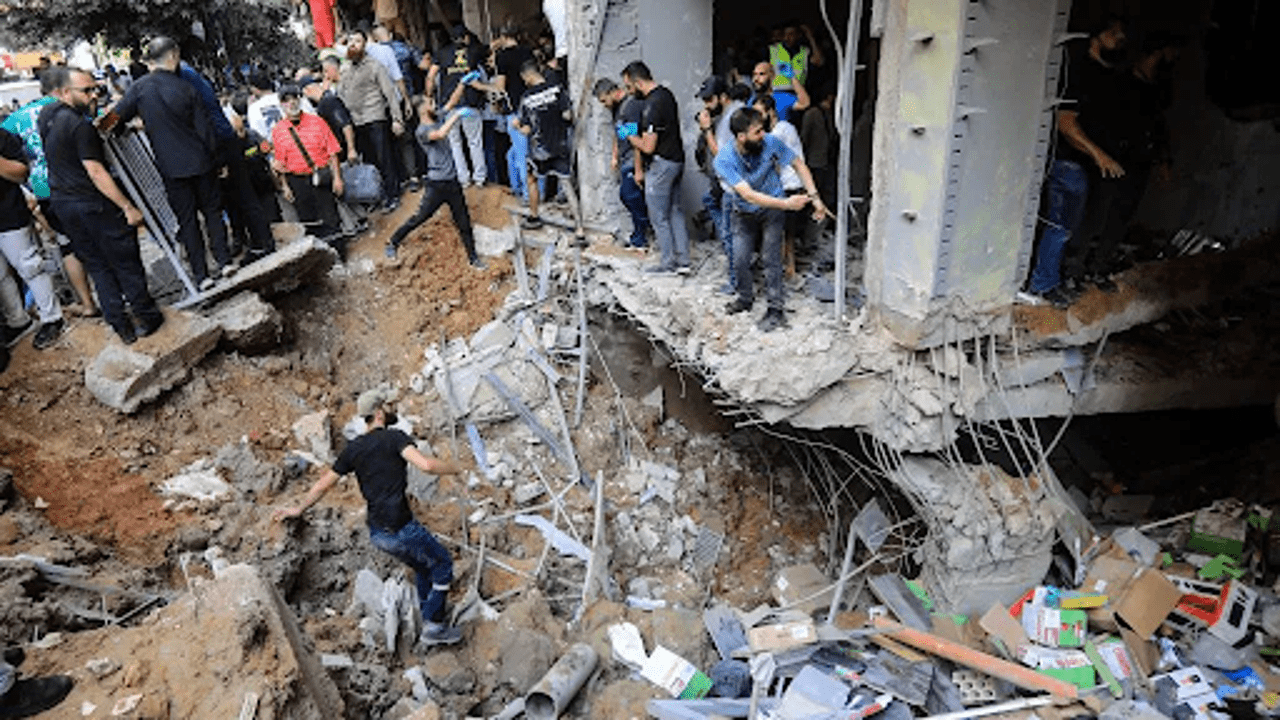
The airstrike led to the collapse of at least one building in Beirut. BBC
A significant escalation in tensions occurred in Beirut when an Israeli airstrike killed a top Hezbollah military commander, Ibrahim Aqil, on Friday. This event has heightened fears of a broader conflict in the region.
Hezbollah confirmed Aqil's death, adding that several other senior members of the group were also killed in the strike. According to Lebanese officials, at least 14 people died, and many others were injured when the attack targeted the crowded Dahieh area, a known stronghold of Hezbollah in the southern suburbs of the city.
The situation drew attention from international authorities, with a senior UN official warning that the Middle East might be on the brink of a conflict far worse than anything seen recently. Rosemary DiCarlo, the UN's chief of political affairs, expressed concern during a Security Council meeting, highlighting the gravity of the situation following this week’s earlier attacks, which resulted in the deaths of at least 37 people.
In the aftermath of the airstrike, chaotic scenes unfolded in Beirut as emergency responders rushed to the area to aid the injured and search for survivors trapped under collapsed buildings. One residential structure fell, and several others suffered significant damage, forcing streets to be blocked off by Hezbollah members, many of whom appeared shocked by the attack.
The airstrike marked the first strike on Beirut since July when another high-ranking Hezbollah official was killed. The Israel Defense Forces (IDF) spokesperson stated that Aqil was part of the elite Radwan forces within Hezbollah and was killed while meeting with other commanders in a location hidden beneath a civilian building.
The IDF claimed that those killed were planning an operation called "Conquer the Galilee," aimed at infiltrating Israeli territories and attacking civilians. This plan had been previously reported by the IDF, which noted ongoing efforts to thwart Hezbollah's attempts to dig tunnels into Israeli territory.
Hezbollah’s military chief Fuad Shukr was killed on Friday. BBC
The U.S. government had previously offered rewards for information about Aqil, known for his involvement in significant attacks in the past, including the bombings of the U.S. embassy and a marine barracks in Beirut during the 1980s.
In a statement confirming Aqil's death, Hezbollah referred to him as one of their prominent leaders. Established in the early 1980s with support from Iran, Hezbollah has been a formidable opponent of Israel, especially during times of conflict.
On the same day as the airstrike, Hezbollah retaliated by launching strikes on military sites in northern Israel. The IDF reported that around 140 rockets were fired into Israeli territory, prompting warnings about potential damage.
Tensions between Israel and Hezbollah escalated significantly after the attacks on Israel by Hamas in October 2023, with both sides suffering heavy casualties. Israel has recently prioritized the conflict in the north, focusing its military efforts there.
Aqil, a senior commander in Hezbollah’s elite Radwan forces was also killed on Friday. BBC
Following the previous week’s attacks, there has been a deepening sense of insecurity in Lebanon, particularly after unexplained explosions affected Hezbollah’s communication systems, leading many to speculate about Israeli involvement.
In response to these developments, Hezbollah’s leader, Hassan Nasrallah, condemned Israel’s actions, stating that they had crossed moral and legal lines. He pledged retaliation but also suggested that Hezbollah was not seeking a broader conflict.
Lebanese officials have accused Israel of undermining ceasefire efforts and further escalating the situation. The UN and various nations, including the U.S. and the UK, have urged caution and advised their citizens against traveling to Lebanon, while also engaging in diplomatic efforts to de-escalate the conflict along the Israel-Lebanon border.















